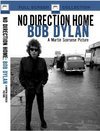Once you realize this movie isn't a porno, it's actually pretty damn good. Yeah, I was disappointed at first, but instead of hunting down the red light district I actually decided to stay. Hell, porn is accessible 24/7, but a movie this funny only comes around once in a while.
The plot revolves around Harry Lockhart played by Robert Downey Jr., a petty thief turned aspiring actor who soon finds himself in the midst of an old fashioned film noir plot. Val Kilmer plays Gay Perry, a private detective who is hired to show Harry the ropes for his potential new role. When someone from Harry's past shows...actually, the plot is really just a MacGuffin for the two actors to spout off clever lines at one another, and the movie itself seems keenly aware of this. In fact, Robert Downey's character narrates the film complete with fourth wall shattering comments (such as referencing the audiences in Times Square). His narration could have come off as annoying, but thanks to the strong script and funny delivery it works perfectly.
The entire film is really just an excuse for these two actors to play off of each other, and they do a fantastic job. Val Kilmer and Robert Downey Jr. can be two of the most frustrating actors. Sometimes they can seem so self-conscious that it's painful, and other times they can turn in a role that singlehandedly makes the movie (Val Kilmer in Tombstone for example). Here they're at the top of their game. They play off of each other perfectly. For example, when Harry asks Gay Perry if he's still gay, Perry respond, "No, knee-deep in pussy. I just love the name so much I just can't get rid of it." This is the kind of sardonic, smart-ass humor you'll find in the film.
It's so difficult these days to find a good comedy that this movie felt refreshing. It feels like it has been over a decade since I've actually laughed out loud in a movie theatre. Most comedies are ruled by the Will Ferrell rule of comedy: if you yell it's automatically funnier. It's nice to know that someone out there thinks that a clever script can be funny too.
The qualities of this film don't stop at the humor. There's also some great send-up of film noir. For a noir fan like myself, this was merely icing on the cake. Not only does the film pay tribute to old fashion noir, but takes an opportunity to subvert it whenever it gets the chance. Film noir cliches are raised so they can be turned on their head.
If this movie hasn't already been driven out of the theatres because it doesn't have a bankable star, then go see this film on the big screen. It's worth seeing a comedy with actual laughs with an audience.
The plot revolves around Harry Lockhart played by Robert Downey Jr., a petty thief turned aspiring actor who soon finds himself in the midst of an old fashioned film noir plot. Val Kilmer plays Gay Perry, a private detective who is hired to show Harry the ropes for his potential new role. When someone from Harry's past shows...actually, the plot is really just a MacGuffin for the two actors to spout off clever lines at one another, and the movie itself seems keenly aware of this. In fact, Robert Downey's character narrates the film complete with fourth wall shattering comments (such as referencing the audiences in Times Square). His narration could have come off as annoying, but thanks to the strong script and funny delivery it works perfectly.
The entire film is really just an excuse for these two actors to play off of each other, and they do a fantastic job. Val Kilmer and Robert Downey Jr. can be two of the most frustrating actors. Sometimes they can seem so self-conscious that it's painful, and other times they can turn in a role that singlehandedly makes the movie (Val Kilmer in Tombstone for example). Here they're at the top of their game. They play off of each other perfectly. For example, when Harry asks Gay Perry if he's still gay, Perry respond, "No, knee-deep in pussy. I just love the name so much I just can't get rid of it." This is the kind of sardonic, smart-ass humor you'll find in the film.
It's so difficult these days to find a good comedy that this movie felt refreshing. It feels like it has been over a decade since I've actually laughed out loud in a movie theatre. Most comedies are ruled by the Will Ferrell rule of comedy: if you yell it's automatically funnier. It's nice to know that someone out there thinks that a clever script can be funny too.
The qualities of this film don't stop at the humor. There's also some great send-up of film noir. For a noir fan like myself, this was merely icing on the cake. Not only does the film pay tribute to old fashion noir, but takes an opportunity to subvert it whenever it gets the chance. Film noir cliches are raised so they can be turned on their head.
If this movie hasn't already been driven out of the theatres because it doesn't have a bankable star, then go see this film on the big screen. It's worth seeing a comedy with actual laughs with an audience.



